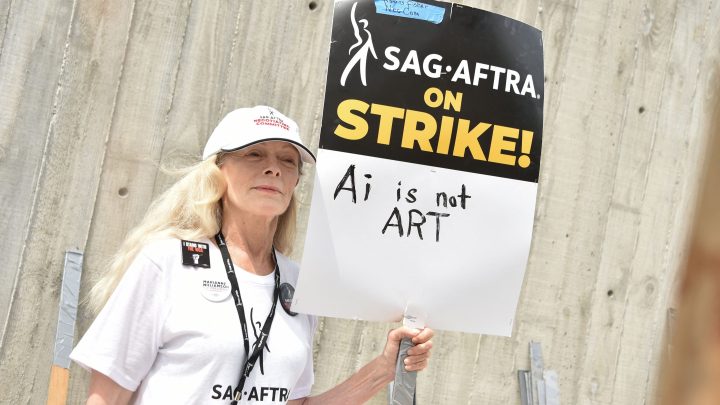
Does the SAG-AFTRA deal go far enough on AI use?

Hollywood’s performers have voted to accept the deal worked out between their union SAG-AFTRA and studios and streamers. One of the big sticking points was over how and when artificial intelligence could be used when it comes to actors and performers, and who gets compensated for it.
Even though a deal was passed, there remains a fair amount of discomfort among actors around it.
AI already does a lot in Hollywood. It dubs films into other languages; it made Harrison Ford young again in the latest “Indiana Jones” movie.
Actors have been looking for rules around digital replicas of themselves. Those rules boil down to two things: “Informed consent and fair compensation,” said Duncan Crabtree-Ireland, national executive director and chief negotiator for SAG-AFTRA, the union representing actors.
If a studio makes a digital copy of an actor or even uses parts of an actor’s appearance in a digital replica, they have to get permission.
“Going forward, our members have an explicit right to grant or withhold their consent from the creation of any kind of digital replica,” Crabtree-Ireland said, “and to make sure that if they do agree to it, they get paid fairly.”
But these rules did not get unanimous support among actors.
“The reason is that they did not achieve a complete ban on synthetic performers,” noted Abraham Ravid, a professor of finance at Yeshiva University.
Synthetic performers are actors completely made up by AI that would act instead of real actors. “In the long run, it probably will be a lot cheaper to these kinds of movies relative to paying Tom Cruise tens of millions to act,” said Ravid.
On the other hand, he said that audiences like to see their favorite actors actually act. While not banned, the union has to be notified if a studio’s going to use a synthetic actor and possibly bargain for compensation if compensation makes sense. In any case, we’re not there yet.
“The technology is not so advanced yet that you could put a synthetic performer to star in a movie,” said Sarah Moses, a partner in entertainment litigation at law firm Manatt, Phelps & Phillips. “So some of the stuff from the SAG agreement is kind of preemptive.”
And the technology is moving so fast and there is enough ambiguity in the contract, she said, for plenty of litigation and renegotiation when it is up for renewal in just two and a half years.
There’s a lot happening in the world. Through it all, Marketplace is here for you.
You rely on Marketplace to break down the world’s events and tell you how it affects you in a fact-based, approachable way. We rely on your financial support to keep making that possible.
Your donation today powers the independent journalism that you rely on. For just $5/month, you can help sustain Marketplace so we can keep reporting on the things that matter to you.
















